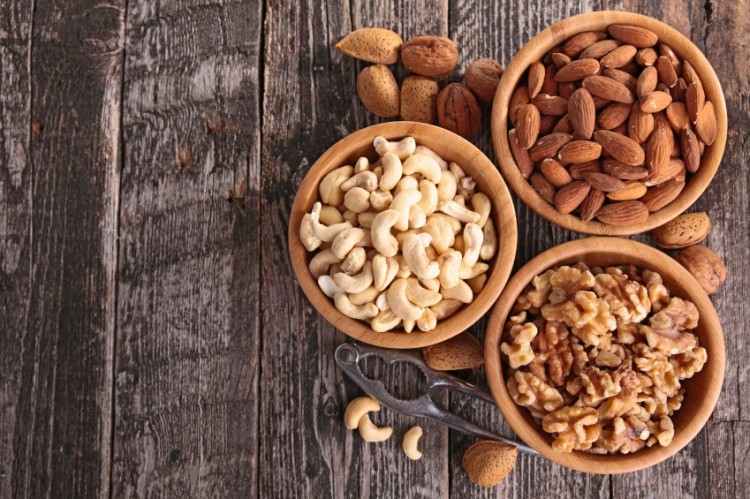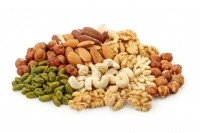A handful of nuts a day reduces major disease risk: Review

The study, which establishes the benefits of nut consumption on cardiovascular conditions, also found convincing data of the food’s effect on other diseases.
“We found a consistent reduction in risk across many different diseases,” said study co-author Dr Dagfinn Aune from Imperial College London's school of public health.
“This is a strong indication that there is a real underlying relationship between nut consumption and different health outcomes. It’s quite a substantial effect for such a small amount of food.”
Nuts are high in fibre, magnesium and polyunsaturated fats - nutrients which have been linked with lowered cardiovascular disease risk and cholesterol levels.
Walnuts and pecan nuts in particular are high in antioxidants, which can fight oxidative stress and possibly reduce the risk of cancer.
Nuts also contain other bioactive compounds, such as ellagic acid, anacardic acid, genistein, resveratrol and inositol phosphates, which may reduce cancer risk by inhibiting cell production, migration, invasion and new blood cell formation.

The study identified peanut butter as being particularly healthy in prolonging life although they acknowledged that the added sugar could counteract any beneficial effects.
“If the associations are causal, an estimated 4.4 million premature deaths in the America, Europe, Southeast Asia, and Western Pacific would be attributable to a nut intake below 20 grams per day in 2013,” the review concluded.
Nutty professors
The researchers from Imperial College London and the Norwegian University of Science and Technology completed a systematic review and meta-analysis of 29 published studies.
These studies involved up to 819,000 participants of which there were more than 12,000 cases of coronary heart disease, 9,000 cases of stroke, 18,000 cases of cardiovascular disease and cancer and more than 85,000 deaths.
While variations were found for specific populations (i.e. male and female, regional differences, risk factors) a pattern was established between nut consumption and the lowering of disease risk across the subjects.
The researchers did acknowledge that their conclusions were formed on the back of notably less data about these respiratory conditions and diabetes in relation to nut consumption.
Source: BMC Medicine
Published online ahead of print, DOI: 10.1186/s12916-016-0730-3
“Nut consumption and risk of cardiovascular disease, total cancer, all-cause and cause-specific mortality: a systematic review and dose-response meta-analysis of prospective studies.”
Authors: Teresa Norat et al




















